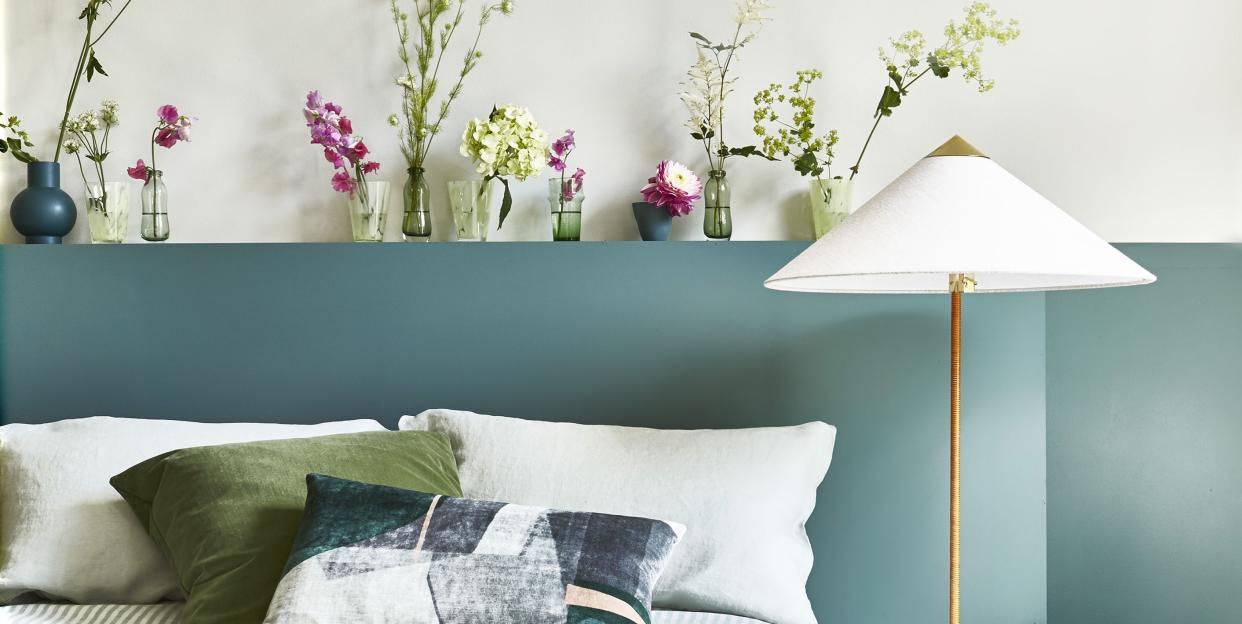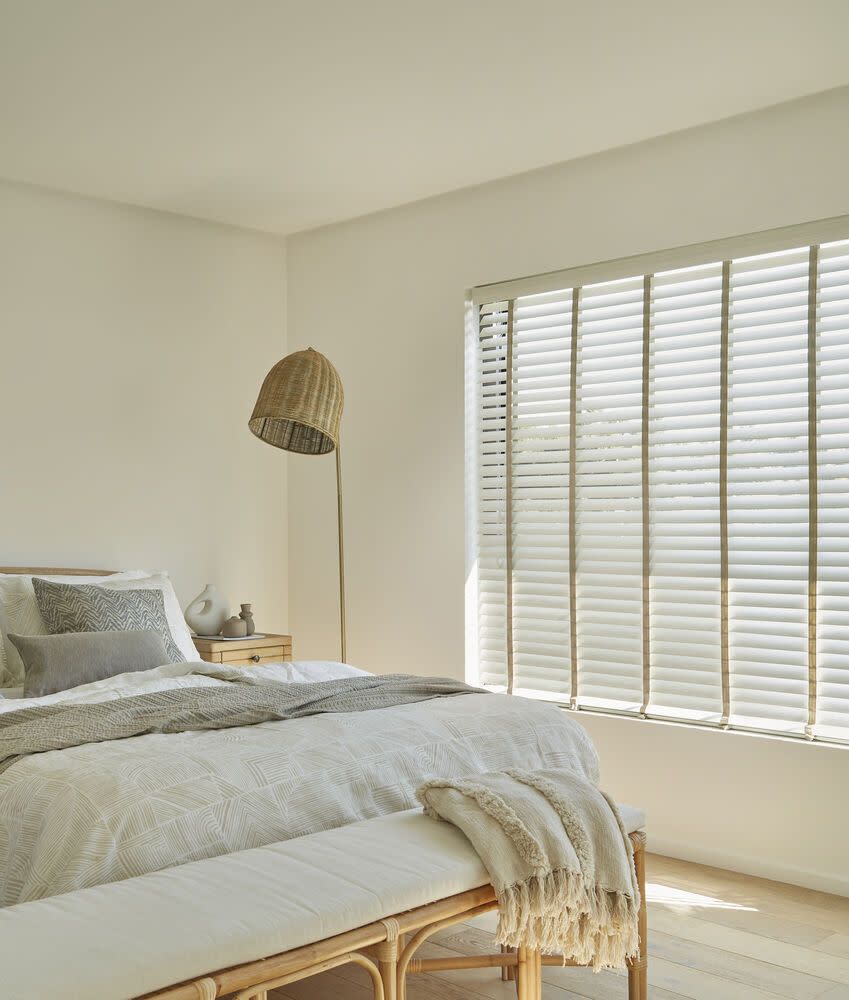What one leading sleep expert thinks you should add to your bedroom

One of the UK’s leading sleep experts has revealed five of the best ways we can bring nature into our bedrooms to aid relaxation and promote better sleep.
Hannah Shore, Sleep Knowledge & Researcher Manager at Silentnight, says bringing greenery into the home, maximising exposure to natural light, and utilising scent and sound can help improve sleep quality.
'Sleep is a huge contributing factor to living a healthy, happy life,' says Hannah. 'Making sure your sleep environment is beneficial to your own sleep preferences is essential, but adding an element of nature to your bedroom is a great way to incorporate a sense of relaxation, and help the mind switch off every night.
'Whether you add a selection of plants to the bedroom, or simply making sure you are getting outside for at least 15 minutes a day, nature holds the key to a great sleeping pattern.'
Below, Hannah has shared her top tips to help bring the great outdoors into your bedroom.
1. Find the right sleep sounds
Studies have shown that sleep sounds such as rain, wind, and thunderstorms induce relaxation, gently nudging us towards a state of sleepiness.
'As well as helping to boost mood, certain sounds can also help with evoking a sense of calmness, especially before bedtime,' says Hannah. 'A few of the most common sounds that encourage relaxation are rainfall and running water, due to the calming contrasting tones, crackling fire, as it evokes a sense of cosiness, and also birdsong.
'Birdsong is known for being stochastic, meaning it is made up of lots of random sounds. The lack of pattern or rhythm within the noise helps the brain to switch off, as the lack of consistency within the sound encourages the brain to relax. Find a sound that suits you, everyone is different.'
Top tip: For the troubled sleeper, try playlists designed to encourage binaural beats, which can activate theta or delta brain waves – those associated with sleep and relaxation.
2. Use natural light

Your circadian rhythm is the principal driver of your sleep, and light exposure is its biggest disruptor. Even the soft glow from a street lamp outside your window can have a bigger effect than you realise. A blackout blind or sturdy shutters will help during the night, but make sure to open them as soon as you rise to reduce tiredness during the day.
'Access to morning light stops your body producing the sleep hormone, melatonin, meaning you will feel more alert and ready for the day. Investing in blackout blinds or curtains can also improve the quality of sleep and prevent light disturbance,' Hannah explains.
Sunrise alarms are a great compromise here to wake you up with gradual light. The more comprehensive models – those often labelled SAD alarms – can replicate the wavelengths of the real sunrise, and often feature a ‘sundown’ setting which gradually dims and removes blue wavelengths that encourage alertness.
3. Introduce scent
'Many scents are renowned for their calming properties,' says Hannah. 'Lavender helps to promote stress relief and relieves anxiety, making it the perfect scent for bedtime. Whereas pine is often celebrated for its terpene, which is shown to have anti-inflammatory effects, which also helps to neutralise the senses after a busy day. Likewise with sounds, find a scent that suits you.'
4. Add the right plants

Keeping plants in the bedroom can be hugely beneficial for both mental and physical health.
'The experts at Patch Plants recommend the Snake Plant and the Kentia Plant, as they conveniently store oxygen away throughout the day and release it during the night – purifying the air as you sleep and therefore improving the quality of sleep,' says Hannah. 'The Philodendron Scandens is also a great choice if your bedroom gets a variety of natural light throughout the day.' It prefers humid environments and only requires a light watering every few days.
5. Get out into nature before bed
Bringing nature into your home is an easy way to ensure a better night’s sleep, but nothing beats getting out into the great outdoors.
'Being outside and around nature has shown to have significant positive effects on mental and physical wellbeing. Studies have shown that spending time in nature can reduce stress and anxiety, therefore improving overall mood, helping us to fall asleep easier,' Hannah adds.
Follow House Beautiful on TikTok and Instagram.
You Might Also Like


